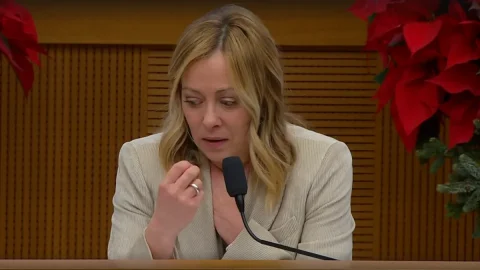The entity of the maneuver cannot be reduced, but must be accompanied by the relaunch of our economy, because the adjustment of the accounts will have restrictive effects: the deputy general manager of the Bank of Italy, Ignazio Visco, immediately enters the merits of the questions, before the members of the Budget commissions of the Senate and the Chamber, meeting jointly in Palazzo Madama. (read the full text)
The reference is obviously to the measures launched in mid-August, as they have not yet been formalised the changes agreed yesterday within the Government. But – says Visco in the introduction – “any changes in the structure of the maneuver should go in the direction of reducing the weight of revenue increases, increasing the role of structural measures, minimizing the negative effects on the product, limiting the uncertainty about the implementation of some measures”, such as – he explains – “the tax and welfare delegation and the ways in which the relative safeguard clause will be exercised”.
Visco points out that "the entity of the maneuver "cannot be reduced, also in the light of the unfavorable evolution of the international macroeconomic situation", adding that "the implementation of the corrective measures will be carefully monitored". And since "the adjustment of the accounts, necessary to avoid a much more serious scenario, will inevitably have restrictive effects on the economy (we risk a phase of stagnation which would also slow down the decline in the weight of debt on GDP)", the recipe of the Bank of 'Italy indicates how "the rebalancing must therefore be associated with an economic policy aimed at relaunching the growth prospects of our economy".
Visco insists: “we need to recover competitiveness and create a more favorable environment for business activity, for the offer of work, for the formation of human and physical capital. There are no alternatives to incisive actions aimed at quickly balancing our public finances and improving the quality of regulation and public services". If this is the premise, Visco then goes into detail on the government's mid-August measures. Growth: in a framework that remains uncertain, "the prospects for the next three years are not satisfactory, a growth in GDP of less than a percentage point could be envisaged in the current year and even weaker in 2012. This would be reflected in the public finances" .
And therefore "the overall extent of the planned cost adjustment cannot therefore be reduced". In perspective, expenditure: the anticipation of the maneuver has made it more difficult to operate with expenditure cuts and therefore it would be appropriate to accentuate the contribution to recovery at least from 2014. The possible savings on the cuts to the Provinces and on the intervention on pensions enter this context . And on this last chapter, the Bank of Italy puts forward a proposal: “provide for a further gradual increase in the 'quotas' for access to the old-age pension. The increase in the retirement age could also be brought forward”.
Looking ahead, "it is necessary to increase the resources available for investment to stimulate growth". Revenue: evasion continues to be a "significant" phenomenon, remarks Visco, with an added value equal to a fifth of the product. And if on the one hand the reduction of the limit on the use of cash and the assessment activity "go in the right direction", nevertheless "more incisive interventions would make it possible to reduce the weight of the adjustment on taxpayers who comply with the rules".
As for the tax delegation, "a uniform reduction of all the concessions could be ineffective". The Deputy Director of Bank of Italy adds: “The weight of the levy on real estate wealth needs to be re-examined, Italy is characterized by a relatively low tax rate” and moreover “it is the only country to have abolished the tax on the possession of the main residence.
Work: “bargaining cannot replace adequate regulatory discipline. Safeguarding employment relationships and supporting unemployed people must be interrelated. To stimulate the participation in the labor market of the components that have the greatest difficulty in integrating, contextual policies are also relevant, such as the provision of care services and the design of the tax system".
Attachments: Hearing_dott._Visco_30_08_2011.pdf





